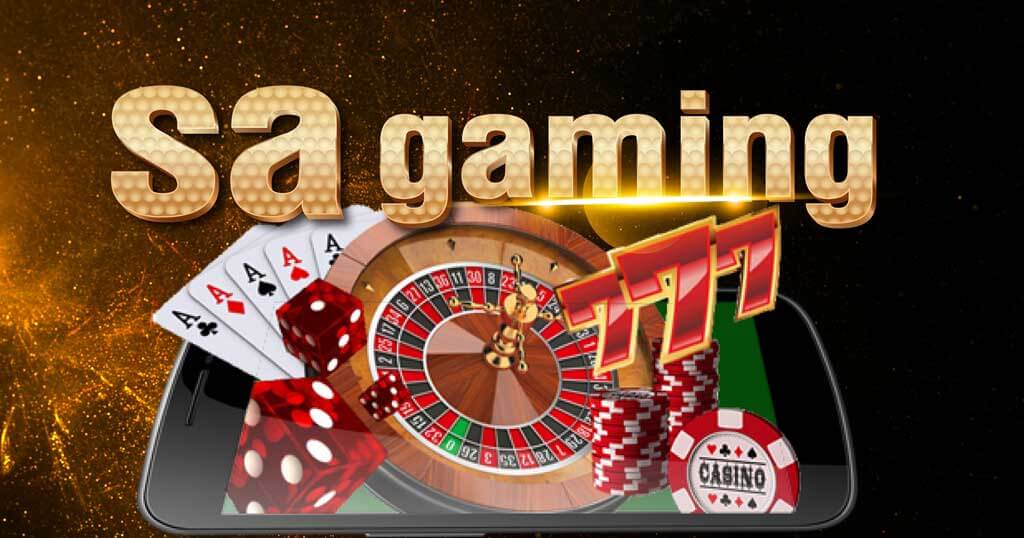In recent years, online gaming has gained huge popularity, with numerous platforms providing immersive experiences that draw in millions of players globally. Among these, SA Gaming has emerged as a key name, offering a range of games that satisfy both casual players and seasoned gamblers. As the gaming industry continues to develop, it is important to examine not only the entertainment value it provides but also its influence on mental health.
The rise of SA Gaming presents an interesting contrast. On one hand, it offers an entertaining way to unwind and connect with others, creating a sense of community among players. On the other hand, concerns about the psychological consequences of excessive gaming are growing. sagaming will delve into the intricacies of how gaming, particularly through platforms like SA Gaming, can affect mental well-being, exploring both the positive aspects and potential challenges players may face.
Comprehending SA Gaming
The platform SA Gaming is an emerging leader in the online gaming and entertainment market, presenting a diverse selection of gambling games and betting options. This platform has attained popularity for its intuitive design and multiple gaming selections, which include live casino games, slots, and traditional table games. As a player-friendly site, SA Gaming aims at providing an engaging experience that integrates captivating action with stunning imagery and sound effects.
The surge of SA Gaming can be linked to the rising interest for online gaming solutions, notably in regions where traditional gambling venues are less reachable. This change has been accelerated by improvements in technology, permitting players to enjoy high-quality gaming opportunities directly from their devices, whether on a PC or smartphone. As a result, SA Gaming has created a significant market footprint, drawing in players looking for comfort and entertainment from the comfort of their own homes.
Nevertheless, the popularity of SA Gaming and comparable sites raises critical considerations about the impact of such gaming activities on emotional health. While online gaming can provide entertainment and a form of relief, it can also lead to negative effects for some individuals. It is crucial to examine how the interaction with SA Gaming might influence mental wellness, social connections, and comprehensive well-being in players.
Effects of Gaming Activities on Mental Health
Playing games can have a variety of influences on psychological well-being, both advantageous and detrimental. Playing games can provide an way to disconnect from the real world, enabling individuals to lose themselves in alternative realities and stories. This diversion can serve as a short-term solution from stress, anxiety, or depression, offering a way to take a break that can be helpful if not overdone. Additionally, gaming can promote social connections, as players often engage with friends or meet new people through gaming networks, which can boost feelings of belonging and community.
However, excessive gaming can lead to unfavorable impacts on psychological health. Individuals who dedicate excessive hours to gaming may experience greater loneliness, particularly if gaming replaces real-world interactions. In addition, the competitive nature of many games can lead to stress, anxiety, and a sense of inadequacy, particularly if players have difficulty achieving their objectives or make comparisons with fellow players. The allure of perpetual success in gaming can also lead to addictive behaviors, where individuals dedicate more hours to gaming at the cost of their mental health.
Finding equilibrium between gaming and other engagements is crucial for upkeeping psychological well-being. While SA gaming can serve as a source of entertainment and camaraderie, it is important for individuals to be mindful of their gaming habits. Taking regular breaks, doing other physical activities, and nurturing real-life relationships can help alleviate the potential detrimental effects of gaming. By fostering a healthy relationship with gaming, individuals can enjoy the benefits while diminishing the dangers associated with too much gaming.

Positive Aspects of SA Gaming
SA Gaming provides countless favorable elements that can contribute to the mental well-being of players. An important aspect is the ability for community connection. A large number of people appreciate playing this platform with friends or participating in online forums, which fosters relationships and camaraderie. Such a social component can reduce feelings of loneliness and foster a sense of belonging. Connecting with fellow gamers during gaming sessions provides joy and entertainment and shared encouragement, enhancing psychological health.

Furthermore, these games acts as a means of stress relief for many players. The engaging quality of games enables individuals to get away from the stresses of everyday life, providing a temporary respite from pressures. Many gamers find comfort in the intriguing plots and difficulties presented in the games, yielding reduced anxiety and a more relaxed state of mind. Such a source of relief is especially advantageous for people facing significant stress in both work and personal settings.
In conclusion, this platform can also stimulate intellectual skills and enhance problem-solving abilities. Many games require strategic skills, fast decision-making, and flexibility, thus improving cognitive flexibility. By engaging in such activities, players often experience enhanced cognitive functions, resulting in increased self-confidence and satisfaction. Such mental involvement can help foster an improved mental state, promoting a more balanced perspective on everyday challenges.
Negative Outcomes of Excess Gaming
Overindulgent gaming can lead to a variety of emotional troubles that significantly impact an individual's daily life. One of the most common problems is the onset of stress and melancholy, often intensified by prolonged detachment from community engagement. Gamers may find themselves isolating into virtual worlds, neglecting actual relationships and duties. This disconnection can create a loop of despair and sadness, making it ever more difficult to achieve a positive balance between gaming and personal well-being.

Additionally, another major concern is the influence on cognitive abilities. Players engaged in long hours of gaming might experience challenges in attention, recall, and judgment. The hyper-stimulation from fast-paced games can lead to a decreased ability to pay attention on tasks that require sustained concentration. This decrease in cognitive functioning can carry over into the gamer’s school or professional performance, creating pressure and potentially worsening mental health issues.

Finally, the addictive nature of gaming can foster dependency issues, where individuals prioritize gaming over essential aspects of life such as recovery, nutrition, and exercise. This neglect can result in wellness concerns, which further contribute to a decline in mental health. The relationship between physical and psychological well-being underscores the necessity of restraint in gaming habits to maintain a fit lifestyle and safeguard individual’s mental health.
Strategies for Healthy Playing Habits
Building a schedule that features set play periods can assist maintain a equilibrium between gaming and other pursuits in life. This framework motivates players to value responsibilities such as work, education, and relationships. By setting specific slots for gaming, individuals can enjoy their favorite titles without letting them interfere with their daily obligations. Keeping track of gaming hours also lets players to assess their behaviors and modify accordingly.
Incorporating breaks during play periods is essential for both mental and bodily well-being. Taking short pauses every hour can lessen eye strain and boost concentration. Players can use these intervals to loosen up, hydrate, or partake in other activities that encourage well-being and presence. This method not only supports in maintaining concentration during play but also prevents exhaustion and improves the overall playing encounter.
Lastly, fostering a friendly setting around play can elevate satisfaction and reduce feelings of isolation. Connecting with friends or relatives in cooperative games or discussing adventures can foster a nurturing community. Additionally, talking honestly about play habits and thoughts can aid individuals identify early signs in advance. A solid social network offers support and responsibility, leading to better gaming practices.




